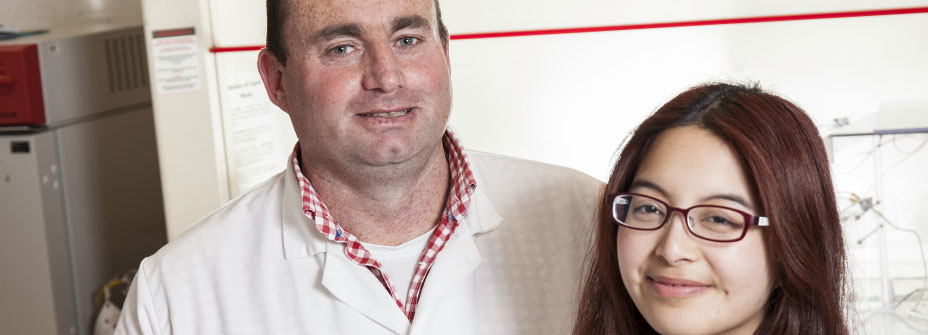
Waste not
Red wine is supposed to be good for us, in moderation, but so too could be the stalks, skins and seeds the wineries throw away.
Dr Greg Walker (School of Pharmacy) and two students, Avis Kao and Lei Xia, are researching the use of wine-waste extracts in the fight against bacteria. They are working in collaboration with Dr Michelle McConnell (Microbiology and Immunology) and Dr Alaa Bekhit (Food Science).
Walker explains that wine waste is full of compounds known as polyphenols that have high antibacterial and antifungal qualities. He says New Zealand wine waste is particularly high in these polyphenols, probably as a way of grape vines protecting themselves from the high levels of ultraviolet light.
The research aims to determine whether it is possible, using a process called electrospinning, to incorporate these polyphenols into nanofibre textiles woven from polymers made from natural products such as corn protein. The polyphenols would then be slowly released from the textile to prevent bacterial growth.
The team has identified medical dressings and meat wraps among potential uses.
“You could leave it in the body and it would degrade, or you could use it as a wound dressing that could later be removed,” Kao says.
“If we could put a piece of wine-waste wrap around a leg of lamb and increase its shelf life by a week, that would be massive,” Walker enthuses.
Xia points out that New Zealand wineries produce tens of thousands of tonnes of wine waste each year.